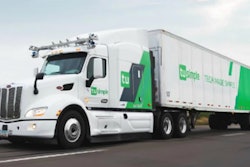
The American Transportation Research Institute's recently released analysis calls into question California’s readiness for full vehicle electrification
The research expands on ATRI’s 2022 report, Charging Infrastructure Challenges for the U.S. Electric Vehicle Fleet, by providing an analysis of the challenges in one state as it moves toward widespread deployment of electric vehicles. Following a similar methodology as ATRI’s national analysis, this statewide analysis focuses on:
- grid sufficiency for powering all vehicles
- the cost of electricity
- the challenges in sourcing materials for batteries
- the expected increase in supply chain costs as the trucking industry experiences significantly increased vehicle costs
According to astatement from ATRI, key findings include:
- California’s top three power generators face an uncertain future, further widening the gap between power generation and demand for electricity
- Californians already pay the second highest average rate for electricity at 22.33¢ per kWh, compared to the national average of 12.36¢ per kWh
- Californians will see an increase in the number of trucks on the road as the heavier battery weight will reduce cargo-carrying capacity in each truck. ATRI estimates for every 1,000 trucks currently on the road, an additional 343 trucks will be needed due to battery weight.
A copy of the California analysis, Is California Ready for an Electric Vehicle Future?, along with the full Infrastructure Challenges report, is available from ATRI’s website here.








